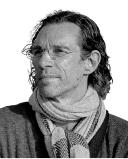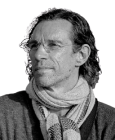Consciousness
Why Consciousness Feels Like Something to Someone
Does the future of all life depend on the evolution of our consciousness?
Posted January 4, 2024 Reviewed by Hara Estroff Marano
Key points
- Consciousness is first of all a first-person experience.
- Consciousness science is dominated by the third-person perspective.
- The self is an intrinsic structural aspect of each and every experience.
- Before we let artificial intelligence into our lives, we should study the natural evolution of consciousness.
Can We See the Real Nature of Consciousness from Outside?
Can we understand consciousness by describing the various metaphysical positions: dualism, materialism, identity theory, functionalism, eliminativism, and so on? The preoccupation with metaphysical issues tends to degenerate into highly technical and abstract discussions that can lose touch with the nature of experience. (Gallagher & Zahavi, 2020)
_0.jpg?itok=Lg1Li4Ju)
What is consciousness?
“The sense that you are experiencing something - that, in a nutshell, is consciousness.” (Psychology Today Staff on Consciousness)
Consciousness has an intrinsic existence: The nature of every experience is private. (First Axiom of the Integrated Information Theory by Tononi & Koch). Despite this fact, consciousness science is still dominated by a third-person perspective. We need this valuable perspective, but we need to supplement it with a first-person perspective. We also need to suspend for a moment our metaphysical assumptions and start with experience. We can try to go “back to the ‘things themselves’”(Husserl, 2001, p 168).
This was the position taken by the phenomenologists at the beginning of the twentieth century. This approach was categorized as “continental philosophy”, whereby "continental" means the European continent. Psychology emerged from philosophy at the end of the nineteenth century.
But while psychology, under the dominance of the behaviourist perspective, turned away from the unmeasurable experience and focused only on stimulus and behaviour, the philosophical tradition of phenomenology took a deep dive into experience. It created a methodology to describe the structure of experience. (Merleau Ponty, Sartre, Heidegger)
Beyond the Divides Between Disciplines
One of the insights of phenomenologists is that all conscious actions, whether perception, memory or imagination, have an intentional structure: Our minds are in the world. Experience is always directed to some object. Intentionality is reflected in the very structure of consciousness. Consciousness is about or is of something. Experience is never an isolated process. There is always a reference to the world involved. In 1974, Thomas Nagel asked the famous question: “What it is like to be conscious?” (Nagel, 1974). The phenomenal features of consciousness are never divorced from its intentional features.
Consciousness feels like something because it is embodied. Embodiment is another important aspect of a detailed phenomenological analysis. From this embodiment we can see a minimal self emerging.
But consciousness also has an important temporal aspect: The present moment of consciousness, or the stream of consciousness, contains an element of the past and an element of the future.
Every phenomenological analysis of experience requires a detailed description of the intentional, embodied, temporal, and phenomenal aspects of experience. Consciousness always feels like something to someone.
Merging the Experiential Aspects in the Self
Recent neuroscientific perspectives resonate and enrich this phenomenological analysis. For example, Antonio Damasio’s “self comes to mind” proposal is a wonderful example of the possibility of fusion. (Damasio, 2018, 2021)
Also Joseph LeDoux’s “ensemble of being” proposal, recently clarified in The Four Realms of Existence, A New Theory of Being Human, exemplifies the richness of interdisciplinarity (LeDoux, 2019, 2023).
But merging insights across divides holds another major challenge:
“Consciousness, then, is hard to 'get right,' not only because science is difficult, and our understanding of the human brain is incomplete, but because, as we study it, we look within, and our vista is filtered through the prism of our biased human cognition. Consciousness is hard for psychological reasons.” declares Iris Berent in The Harder Problem of Consciousness: Us (Berent, 2023).
Consciousness was born from a long interaction between living and sensing. Almost four billion years of natural problem solving passed since sensing evolved into the capacity for knowing we have. Consciousness is hard for psychological reasons: The way our thinking mind is shaped by cultural metaphysical assumptions can block our vision. That’s why consciousness needs the two perspectives, from outside and from inside.
To understand consciousness we must learn to look from multiple perspectives.
“The self is something that is an intrinsic structural aspect of each and every experience.”, writes Dan Zahavi, director from the Center for Subjectivity Research in Copenhagen (Gallagher & Zahavi, 2021, p 238). The self is not something that exists on its own, separated from the stream of consciousness. The self is not a social construct evolving through time (Zahavi, 2020). The self is not some “ineffable transcendental precondition” (Gallagher & Zahavi, 2021, p 238).
The self emerges as the “fundamental subjectivity and first-personal presence” from the relationship between our body and the world (Gallagher and Zahavi, p 238). The self originates from a biological conversation grounded in the fundamental forces of nature. It expands through the electrical and synaptical networks of the nervous system. It exists in multiple levels of internal representations or cognitions. Our self arises from life.
Why It Matters
Consciousness matters to us; it is valuable for us; consciousness is our source of meaning. We cannot simply reduce a process that has been evolving for four billion years to a concept. Consciousness needs a nondogmatic approach. Consciousness manifests itself as countless feelings of many things to us.
Imagine what transformational possibilities of evolution still lie hidden in its relational dynamics. Perhaps we should deeply study and understand the natural evolution of consciousness before we allow an artificial form of intelligence, disconnected from life, to colonize our lives? Therefore, exploring the structure of experience from within and describing it from a balanced and clear perspective is an important task for a psychology of the future.
Consciousness feels like something because it means something. Because it means something that matters for our embodied lives—for someone. Because it feels meaningful to our “experiential for-me-ness” (Zahavi, 2020).
Such is the high value of consciousness in this rapidly changing, ultra-complex world threatened by unprecedented challenges: How can we peacefully coexist with more than 8 billion people? Consciousness will play the lead role in the direction we take.
Consciousness science must be balanced with a first-person perspective. This is why we need a new generation of scientists who also train their introspective abilities. Only a balance between the two perspectives can do justice to the rich phenomenon of consciousness. The future of all life depends on the evolution of our consciousness.
References
Berent, I., (2023) The Harder Problem of Consciousness: Us. New York, Psychology Today.
Damasio, A., (2018). The Strange Order of Things. London, Pantheon Books.
Damasio, A., (2021). Feeling & Knowing. Making Minds Conscious. New York, Pantheon Books.
Edelman M., Tononi G., (2000). A Universe of Consciousness. New York, Basic Books.
Gallagher, S. & Zahavi, D., (2021) The Phenomenological Mind, Third Edition, New York, Routledge.
Heidegger, L., (1996) Being and Time, trans; J. Stambaugh. Albany, Suny.
Husserl, E., (2001). Logical Investigations. 2 vols, trans. J. N. Findlay, London, Routledge.
Koch, C., (2019). The Feeling of Life Itself. Cambridge MA, MIT Press.
LeDoux, J., (2019). The Deep History of Ourselves. The Four-Billion-Year Story of How We Got Conscious Brains. New York, Viking.
LeDoux, J., (2023) The Four Realms of Existence. A New Theory of Being Human. Cambridge Massachusetts, Belknap Press of Harvard University Press.
Merleau-Ponty, M., (2012). The Phenomenology of Perception. Trans. D. Landes. London, Routledge.
Nagel, T., (1974) What it is like to be a bat? Philosophical Review 83, 435 – 50.
Sartre, J. -P., (2018) Being and Nothingness. An Essay in Phenomenological Ontology. Trans. S. Richmond. London, Routledge.
Zahavi, D., (2020) Getting Clearer on for-me-ness and mineness. In U. Kriegel (ed). The Oxford Handbook for the Philosophy of Consciousness (pp. 635-53) Oxford, Oxford University Press.




